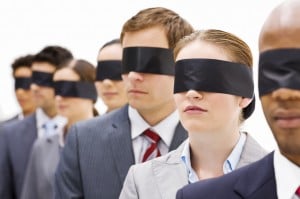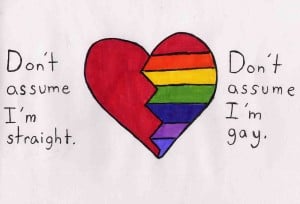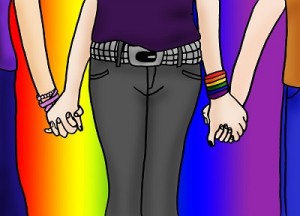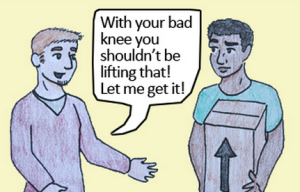
Source: Pixedelic
Jumbo bowls of mac-and-cheese, ghost-hunting reality TV, screaming at the top of my lungs to pop-punk from the mid 2000’s—these are my guilty pleasures.
We all have them: those things you love, but feel guilty about loving so you keep your interest in them quiet. You may only indulge in them occasionally. Maybe you give in to temptation regularly, but keep it secret or apologize for it when you do it.
My entire life, I experienced many of the things I loved alongside with a profound sense of guilt—because they are, after all, guilty pleasures.
Or more accurately, they were. Last year, I entered the new year with a simple resolution: to do away with my guilty pleasures. But not in the way you’re thinking.
Instead of giving up that slice of cake or the catchy songs I hate to love, I decided to put the guilt behind me instead.
I didn’t want to give up the things I love. I wanted to learn to embrace them without guilt.
But it wasn’t as easy as I thought as it would be.
When I started to look at why I felt guilty about these things, I had to confront the truth. And the truth turned out to be that much of the guilt was rooted in internalization of social norms that told me who I’m supposed to be, what’s okay to like, and how I should perform in public.
And as feminists, we know that social norms are not so easy to overcome.
It’s hard work—but it’s worth it.
Now there is a caveat here. Some things we consume we may feel rightly guilty about liking because these activities or media are problematic and may simply beyond redemption. (I’m looking at you, rape jokes)
This is where critical consumption and participation is key.
It would be near impossible to cut out all problematic things from our lives, but instead of doing them in secret and justifying it by calling it a guilty pleasure, we should be analyzing the structures that allow for the problematic aspects of things we like to exist, calling them out, starting conversations about them, and demanding better.
So maybe we should give a second thought before we call something you like a “guilty pleasure.” Here are four reasons why.
1. Guilty Pleasures Assign Worth
The first thing you should consider before using the term “guilty pleasure” is the interplay between privilege and worth we assign to certain activities and behaviors by calling them guilty pleasures.
When we claim something to be a “guilty pleasure,” we are explicitly saying that there is something shameful about liking it—and by extension, we’re saying that we are better than those who do like these things without guilt.
Considering yourself better or more worthy than another group of people…Sound familiar?
When left unexamined, it allows for the perpetuation of oppressive behaviors.
If, as a white person, you express guilt about liking rap music, what are the implications of that? What are you saying about hip-hop culture and the people who make and enjoy that music?
Or if you’re embarrassed to admit that you like watching the occasional episode of The Lizzie McGuire show, what does that say about teen girls? Should they be ashamed of the content that is marketed toward and made for them?
Not having an answer to these questions or having never had to think about them in the first place is an aspect of privilege that is absolutely essential to interrogate when we examine our own behaviors.
When we call something a “guilty pleasure,” what we are essentially saying is that there is something inherently wrong with the people who do enjoy these things without guilt or with the demographic they target.
This in turn has the effect of creating a hierarchy of who and what is important. It puts our own preferences above others as more worthwhile and categorizes those who genuinely enjoy things we think should be guilt-worthy as less-than.
So we have to look critically at why both we and society place value on some things over others and how our privilege plays into making those determinations.
2. Guilty Pleasures Demean Young Women And Girls
Guilty pleasures are things that have mass appeal, and we often deem these things to be less worthy of our time and attention.
Many of the most common things we associate with this term we also associate with femininity, and young girls in particular. Think about it—your guilty pleasures probably include some of the things a 13-year old girl might enjoy: pop songs, chick-lit, romantic comedies, pouring over a fashion magazine.
Why is this?
The answer is that our culture constantly demeans young women and the things that they like.
In pop culture and our everyday lives, young women and girls are told what to like and how to act. Then, when they do act that way, we mock them.
In response to GQ’s mocking of One Direction’s teen fandom, Aja Romano wrote an article explaining that the root of criticisms of teenage girl-focused media is a profound fear and outrage over the sexuality of young women. This sort of response is no more than an attempt to reign in and control that sexuality.
Romano is right. When we consider things society condemns because of their association with young women and girls, many of them make people confront sexuality—like the Twilight series or boy-band fanaticism.
When we assign guilt and shame to the things young women like by claiming they are no more than “guilty pleasures,” we are reinforcing this same kind of behavior. Not only are we telling young women and girls that there is inherent shame in their sexuality, we are also telling them the things they care about are not worthy of time and attention, and we are failing to validate their choices.
And it doesn’t change as girls grow older. As a society, we often also diminish the value of things associated with femininity and womanhood. People who read romance novels are mocked and those who openly admit their love of things coded as “girly,” like the color pink, are ridiculed.
It is all part of a bigger picture: Misogyny.
Our societal notions about how we can and should act, and in turn what we need to feel guilty about, are wrapped-up in the subtle message that women are inferior and that there is something shameful about being associated with them. And we need to reject that.
3. Food-Associated Guilt
Think of your “guilty pleasures.” How many of them are food? I’m willing to bet there are a more than a few food-related “guilty pleasures” on your list.
Have you ever said, “Oh, I really shouldn’t” and skipped dessert at a group dinner? Have you hid your eating habits because you felt guilty about them? Many of us do.
We skip indulgences, monitor what we eat, and offer apologies or acknowledgement that we are doing something wrong before we eat something we want.
But this sort of behavior can be very dangerous. Assigning guilt to the food that we eat can set us up for harm in a major way.
In fact, many of the red flags associated with eating disorders and disordered eating revolve around the same kind of food-related shame that’s perpetuated by pinning certain foods as “guilty pleasures”.
These signs and symptoms include: feeling shame and guilt after eating, thinking of certain foods as “good” or “bad,” and restrictive eating.
In the United States, “20 million women and 10 million men suffer from a clinically significant eating disorder at some time in their life” and 40-60% percent of young girls say they are concerned about their weight.
When we say eating is something to feel guilty about, we validate those concerns and teach children and ourselves that it is okay to feel that way. It also allows for the perpetuation of unrealistic standards about what bodies should look like and the false notion that there is a set way to achieve that ideal (i.e. not eating).
This is only reinforced by a society where we are bombarded with messages about what our bodies should look like and reminders that we often don’t measure up to those expectations.
You shouldn’t feel guilty about eating. You need food to survive. Not to mention, it tastes good and you deserve to enjoy it! Speaking of which…
4. You Deserve To Feel Good
The final reason you should cast off the guilt surrounding your pleasures isn’t about what you’re indulging in—it’s about you.
You deserve to feel good, to treat yourself, and to enjoy the things you like, unconditionally.
As activists and feminists, we spend a lot of time in our work and movement—it’s easy to burn out. So when we are constantly giving, we have to make a conscious effort to give back to take care of ourselves so that we can continue to practice our activism.
And for this reason and all the ones listed above, you shouldn’t feel guilty about doing the things you love.
Self-care is a revolutionary act in a world that tells us we are not worthy of care, forgiveness, and gentleness. It allows us to fight back against internalized oppression by affirming that yes, you do deserve it. You are inherently worthy of care and attention—even if society tells you otherwise.
So you shouldn’t feel guilty about doing the things you love just because other people feel like it isn’t sophisticated enough, or smart enough, or cool enough, or whatever reason they (or you) have decided you shouldn’t like something.
***
When we examine why we feel guilt, the implications of that guilt, and consume critically, we don’t have to feel guilty about pleasure.
So what do you say? Are you ready to cast off guilt for good?
Join me in embracing the things you and others like as valid and worthy, much like the people who enjoy them. When we examine why we feel guilt, the implications of that guilt, and consume critically, we don’t have to feel guilty about pleasure.
Let’s dance to those catchy songs, watch those cheesy movies, and take that second serving of mac and cheese. Enjoy yourself—you deserve it.
[do_widget id=”text-101″]
Ally Boguhn is Contributing Writer for Everyday Feminism. She’s a feminist activist and media researcher living and working in Washington, DC. She completed both her B.A. in Communications and Art History as well as her M.S. in Professional Communications at Clark University, where she researched abortion debate rhetoric. Ally is also the founder and editor of Because I am a Woman, a blog devoted to intersectional feminism and reproductive justice. In her spare time, you can find her at an art museum, consuming massive amounts of coffee while writing, or trying to convince her cat to go for walk. You can follow Ally on Twitter @AllyBoguhn. Read her articles.
Search our 3000+ articles!
Read our articles about:
Our online racial justice training
Used by hundreds of universities, non-profits, and businesses.
Click to learn more




















